‘A gift from heaven’: The company turning coffee filters into face masks
As the world grapples with a PPE shortage, one unlikely German manufacturer is taking matters into their own hands, writes Christopher F. Schuetze
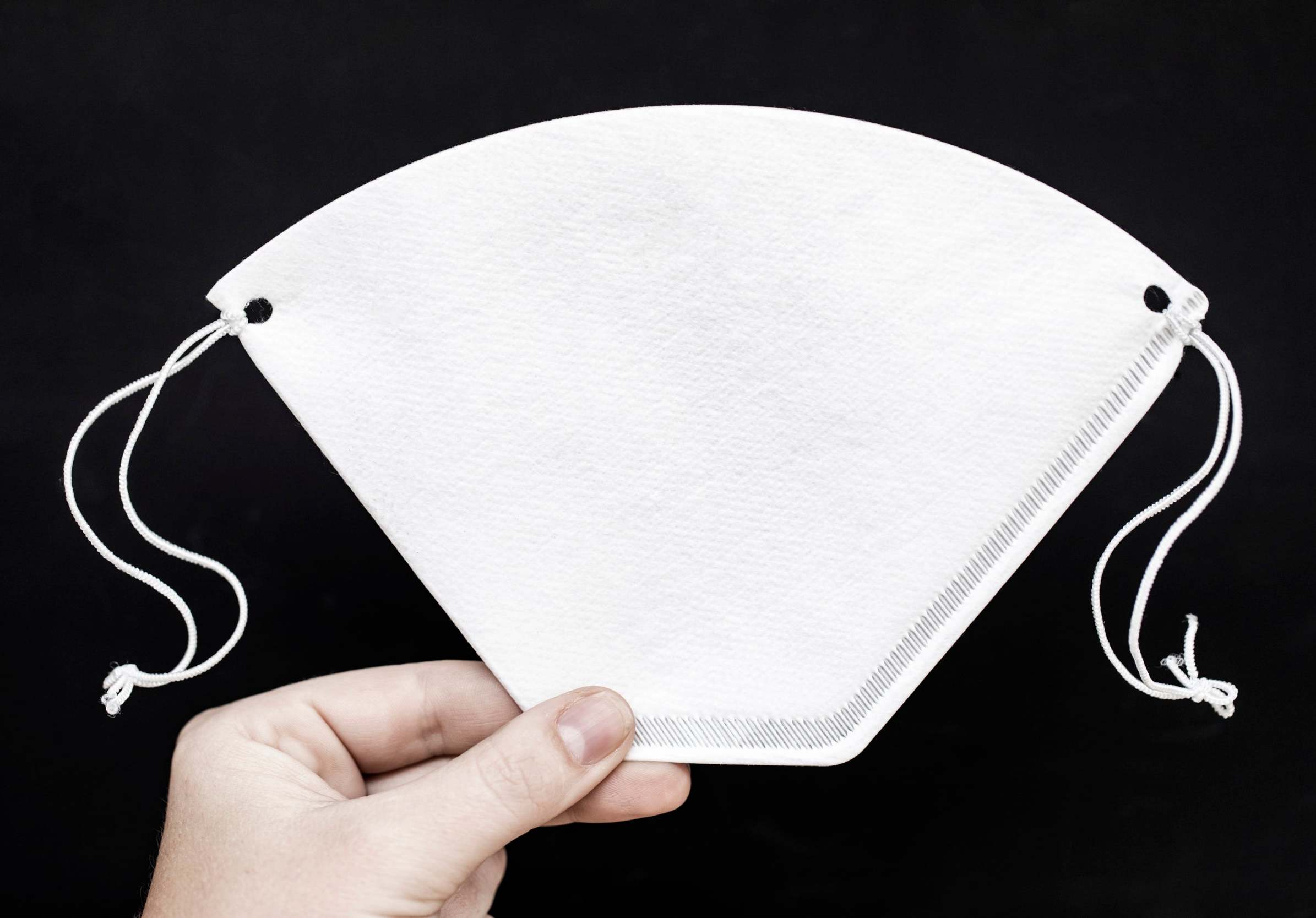
Your support helps us to tell the story
From reproductive rights to climate change to Big Tech, The Independent is on the ground when the story is developing. Whether it's investigating the financials of Elon Musk's pro-Trump PAC or producing our latest documentary, 'The A Word', which shines a light on the American women fighting for reproductive rights, we know how important it is to parse out the facts from the messaging.
At such a critical moment in US history, we need reporters on the ground. Your donation allows us to keep sending journalists to speak to both sides of the story.
The Independent is trusted by Americans across the entire political spectrum. And unlike many other quality news outlets, we choose not to lock Americans out of our reporting and analysis with paywalls. We believe quality journalism should be available to everyone, paid for by those who can afford it.
Your support makes all the difference.As the wave of coronavirus infections broke over Europe in March, causing reserves of medical supplies to disappear, German authorities made a nationwide appeal: more safety masks were urgently needed.
At Melitta, the company that pioneered the paper coffee filter, inspiration was close at hand.
“The ergonomics of the thing, the fact that the filter fits exactly over mouth, nose and chin is so unbelievable that you might call it a gift from heaven,” says Katharina Roehrig, a managing director at Melitta, which is based in a small city in northwestern Germany.
Melitta has a 112-year history with coffee filters that began in the kitchen of the woman who invented them, Melitta Bentz. The company also owns Wolf PVG, which has produced air filters and vacuum cleaner bags for decades, providing valuable knowledge and a supply of the three-ply microfiber needed to make masks to a hospital standard.
“Facing this particular challenge, we realised that we could produce the needed quantities at an insane speed,” says Roehrig – in other words, as many as one million masks a day. “That is what differentiates us from the competition.”
As Germany scrambles to find enough face masks to reopen the economy and public life while keeping the coronavirus at bay, a number of serious and not-so-serious businesses have jumped into the fray with masks.
They have tried to produce and sell the bizarre (masks made from bras), the unexpected (the Playmobil mask), the hip (an upcycled cotton mask by a Berlin designer) and the customisable (why not advertise while protecting yourself?).
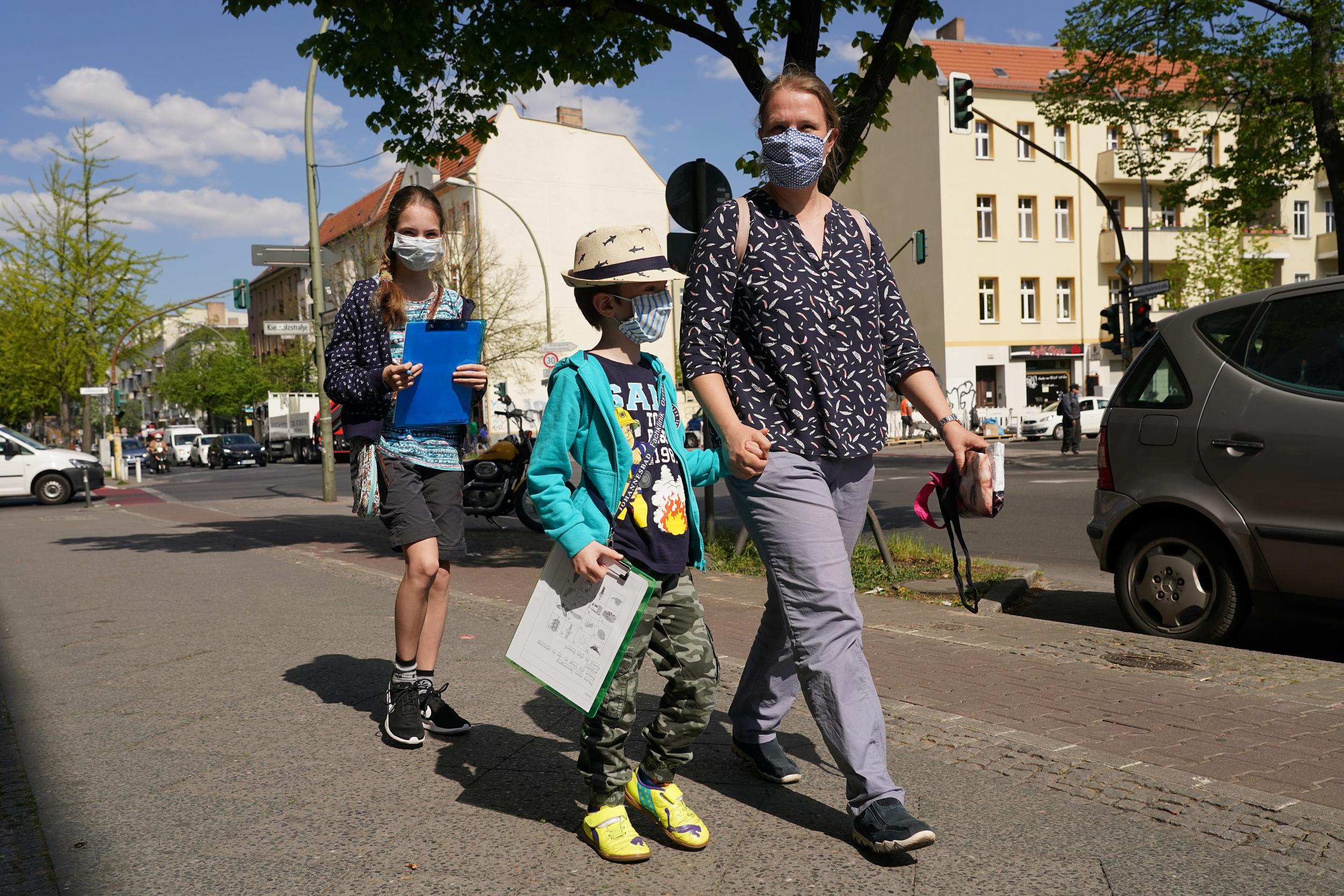
But as Angela Merkel, the German chancellor, has frequently acknowledged, the crucial problem is ensuring that Germans have a sufficient number of quality masks.
“The pandemic teaches us that it is not good if protective equipment is sourced exclusively from distant countries,” Merkel told parliament. “Masks that cost a few cents can become a strategic factor in a pandemic.” The minister of economy, Peter Altmaier, estimates that the country needs up to 12 billion masks a year.
Many masks that filter small particles using microfibre rely on material whose production has mostly moved to Asia. In the mad rush to secure the raw materials, politicians and businesspeople have made it their business to find a source.
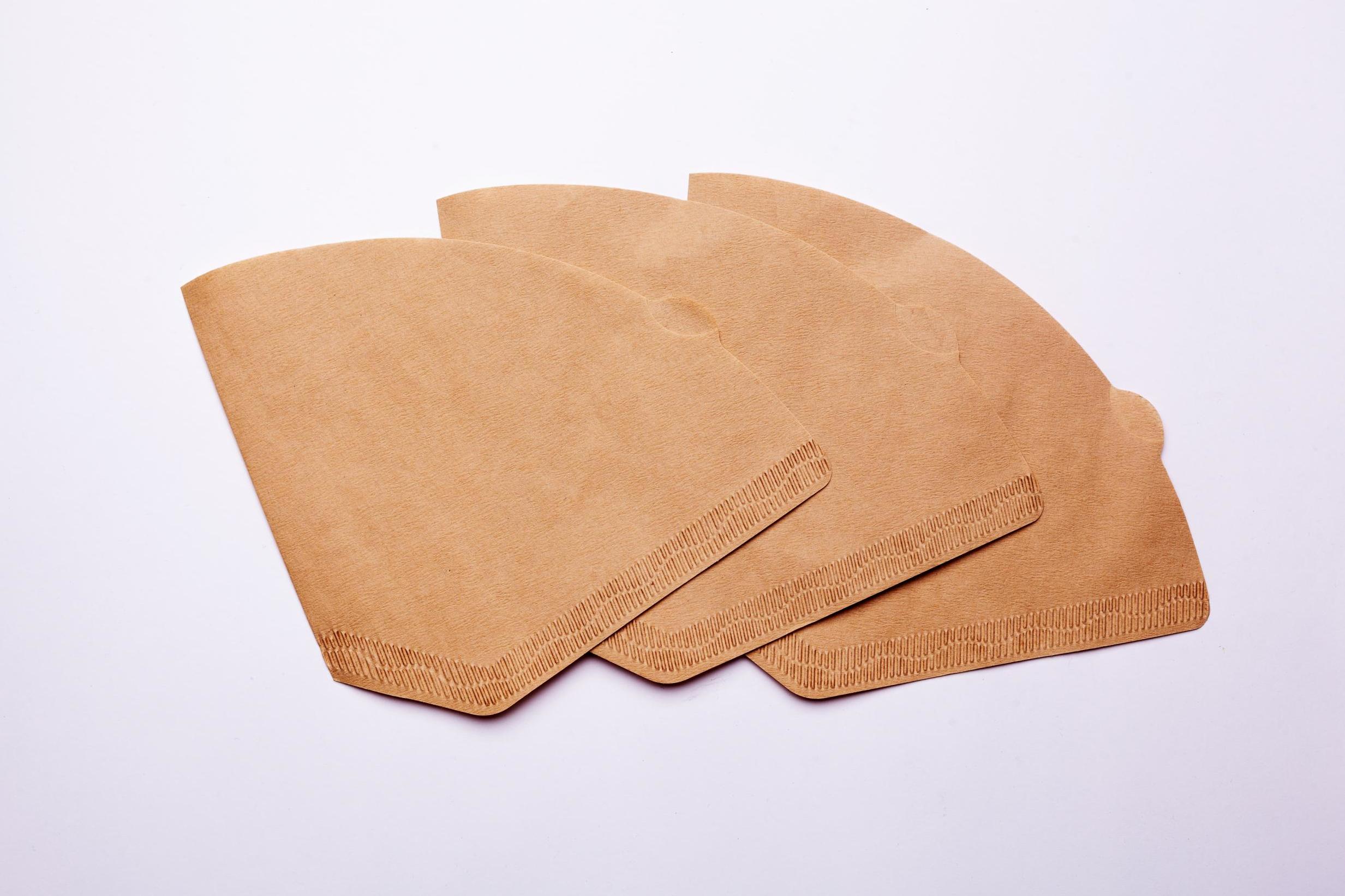
“It’s been a long time since the textile materials sector has gotten so much attention,” says Dr David Schmelzeisen, a textile engineer who runs need-mask.com, which connects suppliers with customers.
The essential ingredient in many medical-grade masks – what separates them from simple homemade versions – is a filter made of non-woven super-thin fibres, formed in a process known as melt-blown extrusion. Since the pandemic, demand for so-called melt-blown fibre has skyrocketed.
The idea that the shape of filter bags for breathing masks could serve as a model was absurd to many
For Melitta, melt-blown fibre is readily available: it makes its own, mainly for use in vacuum cleaner bags. A truck drives big rolls of it from the vacuum and filter factory in Spenge 30 miles to Minden, where Melitta has been based since its founding in 1908. (Melitta also makes coffee filters in the United States, but not face masks.)
The coffee-filter-shaped masks are produced on the same machine as the filters found in grocery store aisles. Although they physically resemble a normal coffee filter, the masks are made from different material (making them unsuitable for brewing coffee).
The material, a triple layer of melt-blown and spun-blown microfibre, has a Bacterial Filtration Efficiency certification of above 98 per cent, a value comparable to simple medical masks.
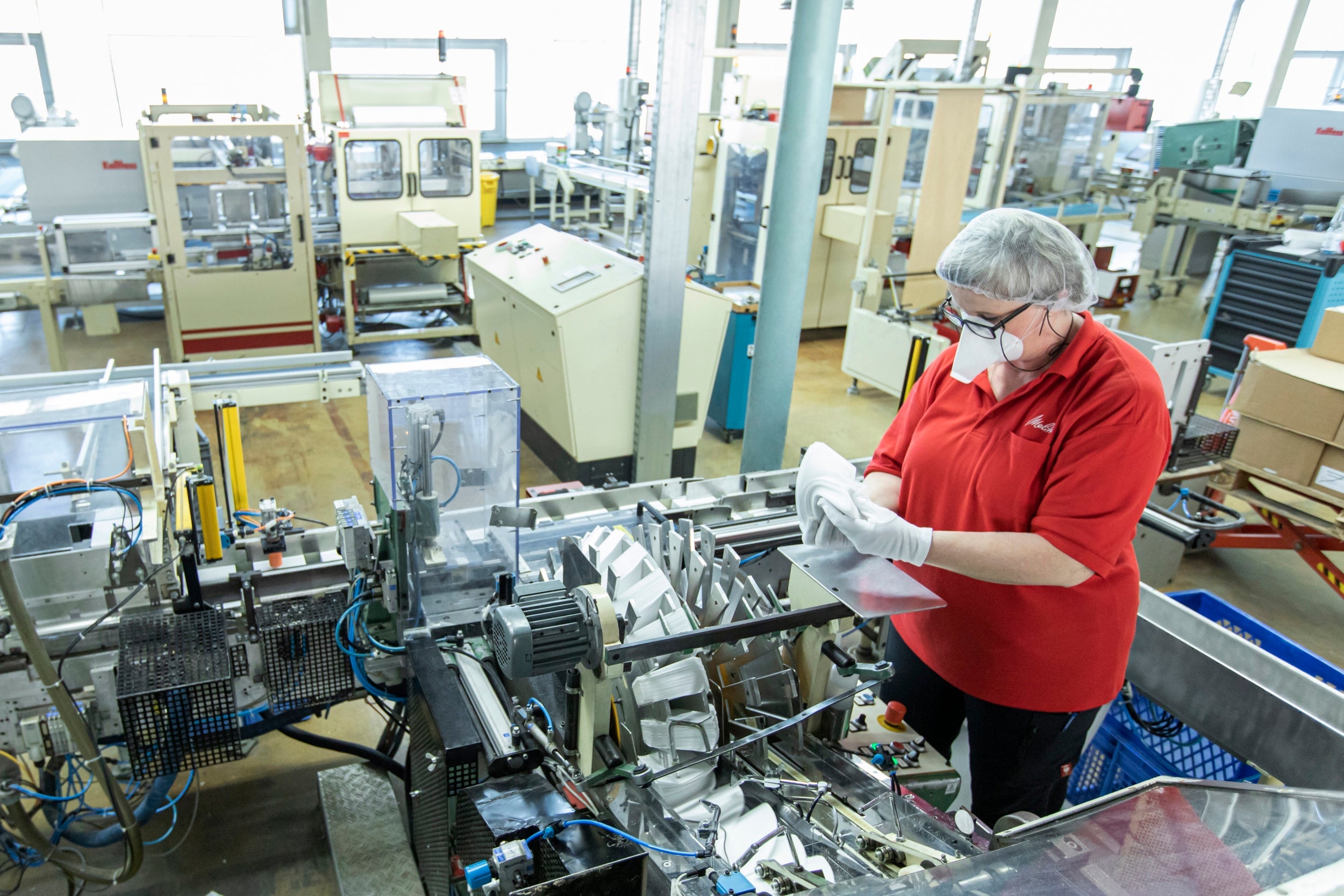
The company has now produced about 10 million masks over the first month, packing them in unmarked boxes, with separate rubber bands to hold the masks in place and assembly instructions.
The first one million went to Melitta workers and retirees and their families. Most of the second million have already been donated locally.
Once the mask is approved by the government as a medical product, the company plans to supply those most in need in their region and eventually sell the product to a broader market. The company has not yet announced a price.
“What is important for us is that we can supply quality masks produced in Germany at prices that are competitive with masks produced in Asia before the pandemic,” says Rene Korte, who oversaw the retooling of one of the coffee filter lines at Melitta.
Korte and his team are working on designs with foldout ear loops, eliminating the need for rubber bands.
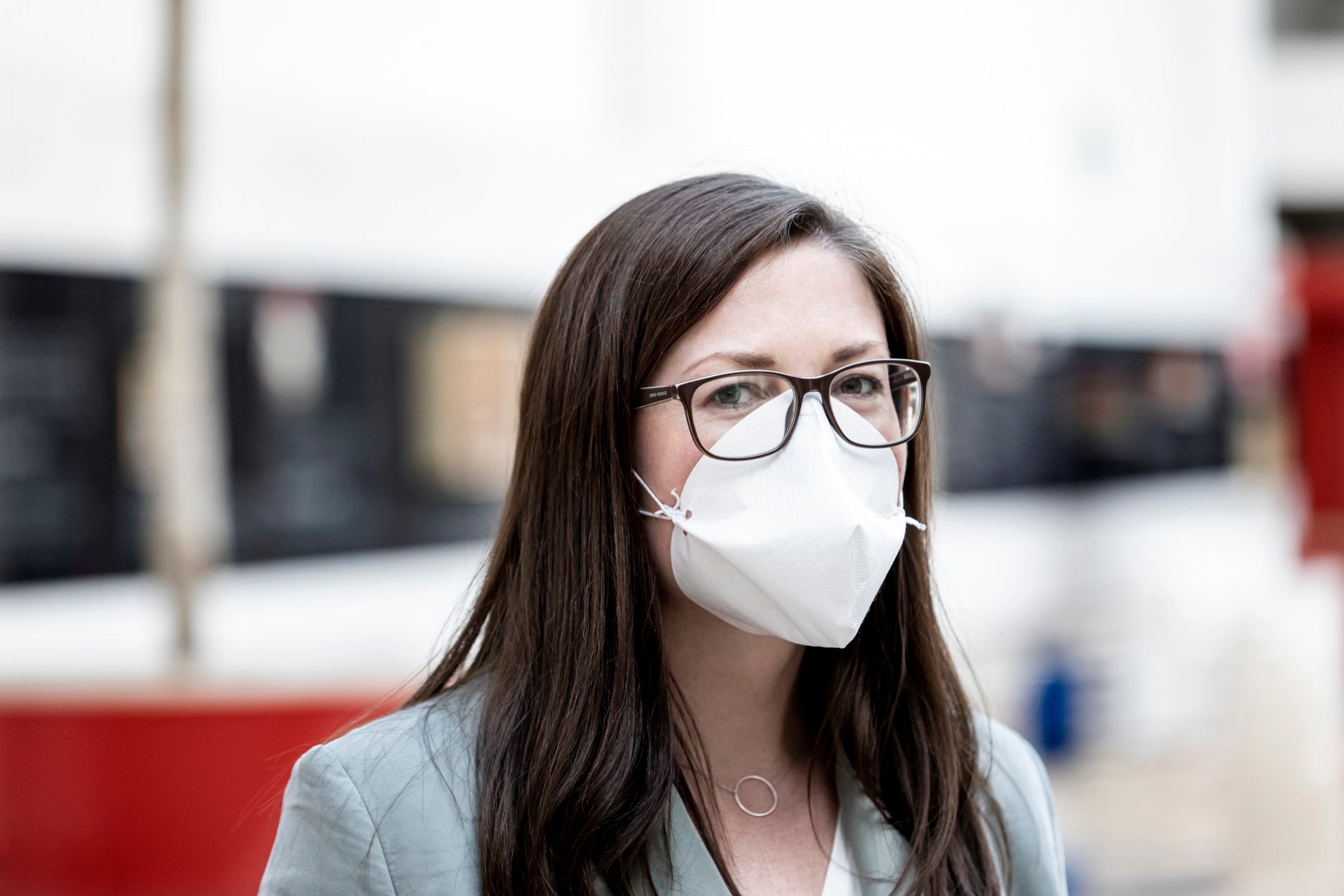
This initiative is not the first time Melitta has considered getting into the face mask business. About a decade ago, it looked into manufacturing masks because the process fit with the company’s expertise.
But this was before the coronavirus.
“The idea that the shape of filter bags for breathing masks could serve as a model was absurd to many,” Korte says. “The production of breathing masks was then still a niche topic for us and was therefore rejected.”
© The New York Times
Join our commenting forum
Join thought-provoking conversations, follow other Independent readers and see their replies
Comments